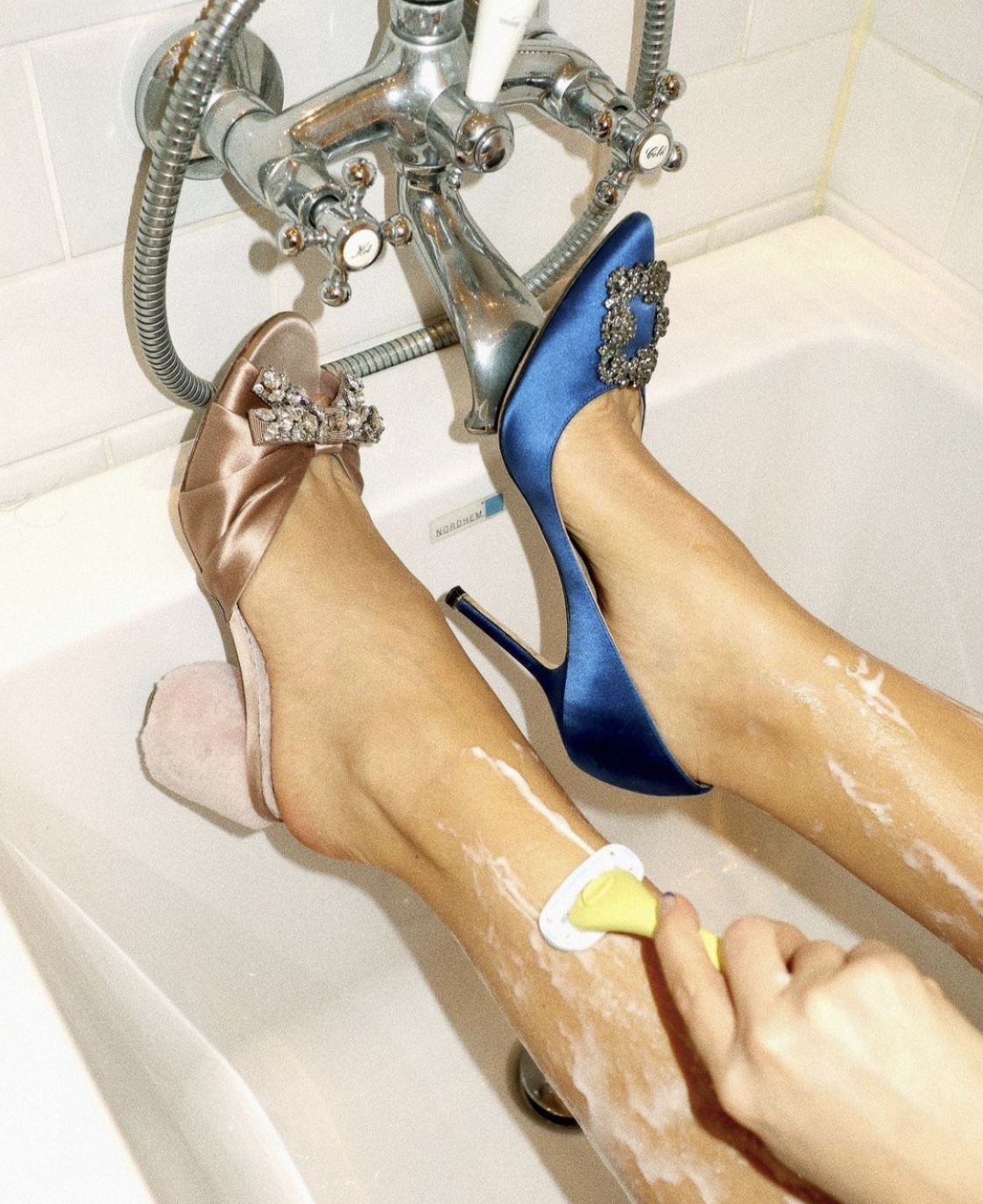Feb 24
Shower Thoughts I: just because it’s expensive, doesn’t mean it’s an investment piece
Hey bestie, get in the shower with me. Oh no, no, not in a creepy, weird way- this is merely an informal invitation to enter the Shower Thoughts Headspace. You know, the time in your day when your IQ is arguably the highest it’s ever been. The time in your day when business ideas are born, quandaries are philosophised, when you basically become a contemporary Socrates (essentially the same, but extra moisturised, with silky, conditioned hair). As most shower-time contemplations, this will not be a linear thought process, but let’s talk about it anyways in hopes of scrubbing our minds clean of any mundane bothers.
As we plunge into the vast world of climate consciousness, we keep hearing people telling us to invest. Invest in long term, good quality pieces, invest in clothes that will last a long time, invest in your wardrobe; invest, invest, invest (don’t even get me started on investing into NFT fashion like those pixelated fluffy Birkins that are plastered all over social media- that’s a topic for another day). However, a line which often gets blurred is the differentiation between what’s actually an investment piece, and what’s just an expensive purchase. Slow fashion and luxury fashion aren’t immune from trends (in fact, let’s not forget that luxury fashion is the source of all the trends that trickle down to the high street, and they pump out new ideas every season), and you’re not immune from a subconscious desire to present yourself a certain way, whatever that way may be.

I’m starting to realise what a strong link there is between a personal identity crisis and the turnover of trends, it’s almost impossible to put your finger down on what comes first- the chicken, or the egg- or what’s more damaging. Because while fast fashion brands aid the excruciatingly quick turnover of trend cycles, clothing production, and thus clothing disposal- and don’t get me wrong, I strongly believe in holding big corporations accountable first and foremost- I can’t help but think about the accountability of the consumer.
I don’t know about you, but I find myself drowning in a lot more silly, unnecessary purchases as a result of wanting to present myself as somebody I’m not (or as I told myself- someone I am not yet), than purchases fuelled by the influence of global trends. And I grow tired of them. I continue to grow up and become more and more conscious about who I am, what I feel comfortable in, what suits me, and what I want to wear. It pains me to say, but the limited edition Ralph Lauren F1 Jacket I hunted down for 3 years (considerably long time to want to buy something) wasn’t an investment piece. Fulfilling an obsessive fixation doesn’t exactly equate to a good decision.
Like the hair on my shower wall, it’s all very intertwined. Trends and trend cycles begin to blur our vision in regards to what’s a timeless piece, and what’s just an expensive piece which is currently trendy. A jacket you love from Zara could very much be a much, much better purchase, than anything you’d find on Farfetch, even if it’s preloved. There’s a world of difference between loving an item and loving luxury brands (or rather, the status you think you gain when buying from and wearing them). Spending a lot of money or buying from high price-point brands isn’t a manifestation of good style or taste, in fact, it’s often an easy cop-out for people who lack exactly that. Because it’s not about buying the clothes for the fashion or style, it’s buying to be able to say “I own this”. Hate to burst the bubble, but putting trendy logos on yourself is the equivalent of taking a selfie with someone famous- it brings absolutely no additional value to you as a person, and might just be something you resort to flexing every now and then, when your personality alone doesn’t seem to do the job in impressing people you so badly want to assimilate to (who, in turn, are doing the exact same thing).
And this is exactly where our consumer purchasing power comes in, because you, and you alone, dictate your relationship to the pieces in your wardrobe- this will require a deep dive into your personal motives, which you may have been avoiding in the process. Of course, we’re all about focusing on how clothes make you feel, but you need to ask yourself- do I feel good in this because of the item itself or because of the brand that made it? If you’re unsure, think about whether you’d still be buying this particular item, if the label attached said ‘Mango’ instead.
Basically, all I’m trying to say is that putting luxury shopping, shopping from trendy Scandinavian ‘sustainable’ brands, and even sometimes secondhand-designer shopping on a pedestal is a little, tiny bit ridiculous. Just as much as I’ve seen people in head-to-toe trends from Pretty Little Thing, I’ve also seen people in head-to-toe Ganni. And while one is better- or shall I say less bad- it still disregards the intrinsic problem, which is the fact that we’ve lost grasp of what it means to dress for yourself. We view fashion as something disposable, and go through 100 identity crises before we actually begin to shop mindfully. And even then, you find yourself slipping up, watching all those efforts go down the drain, just in time for another existential inner monologue while you’re frantically massaging shampoo into your scalp.
Being conscious of coming off as though I know any better- I don’t. As I’m reporting to you directly from my own current identity crisis, I’m trying my best, and I know you are too <3